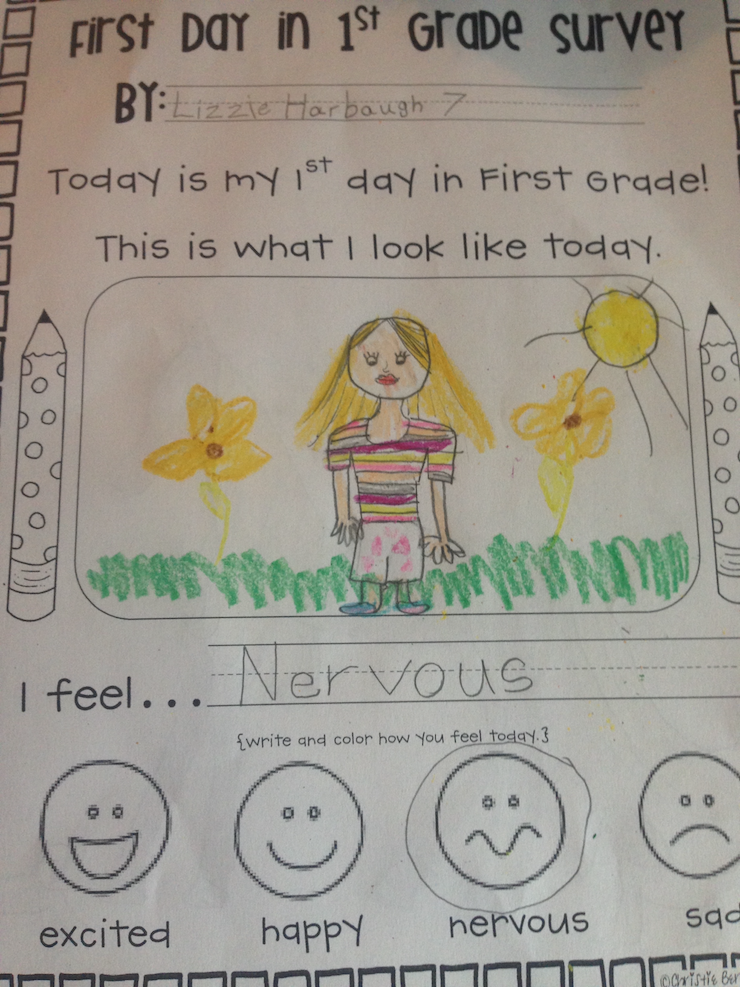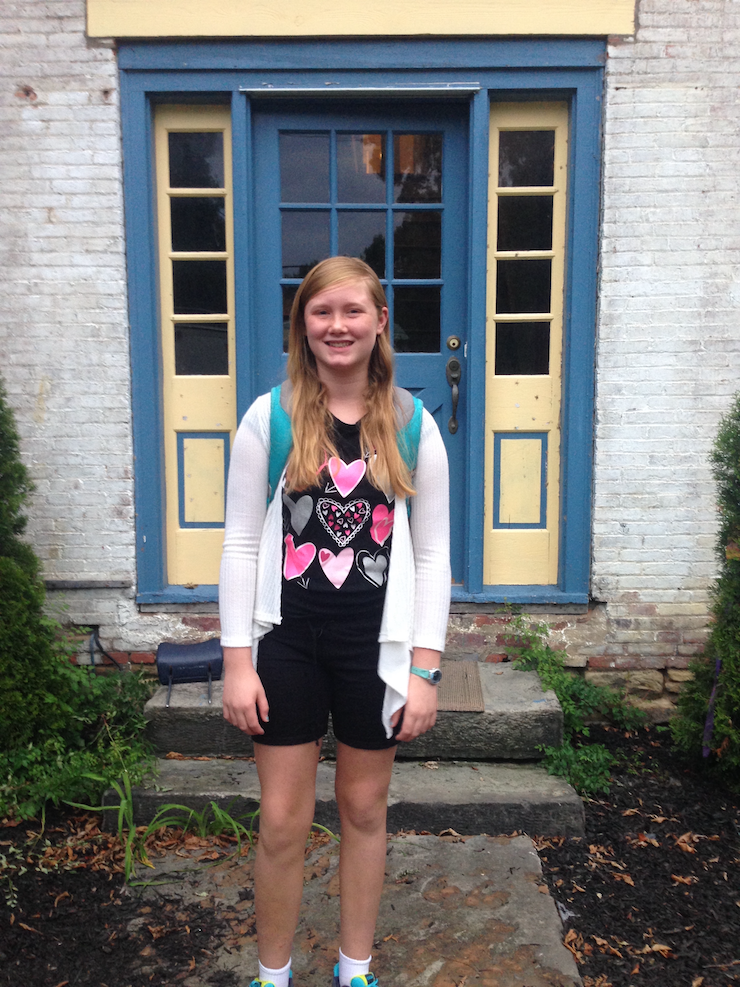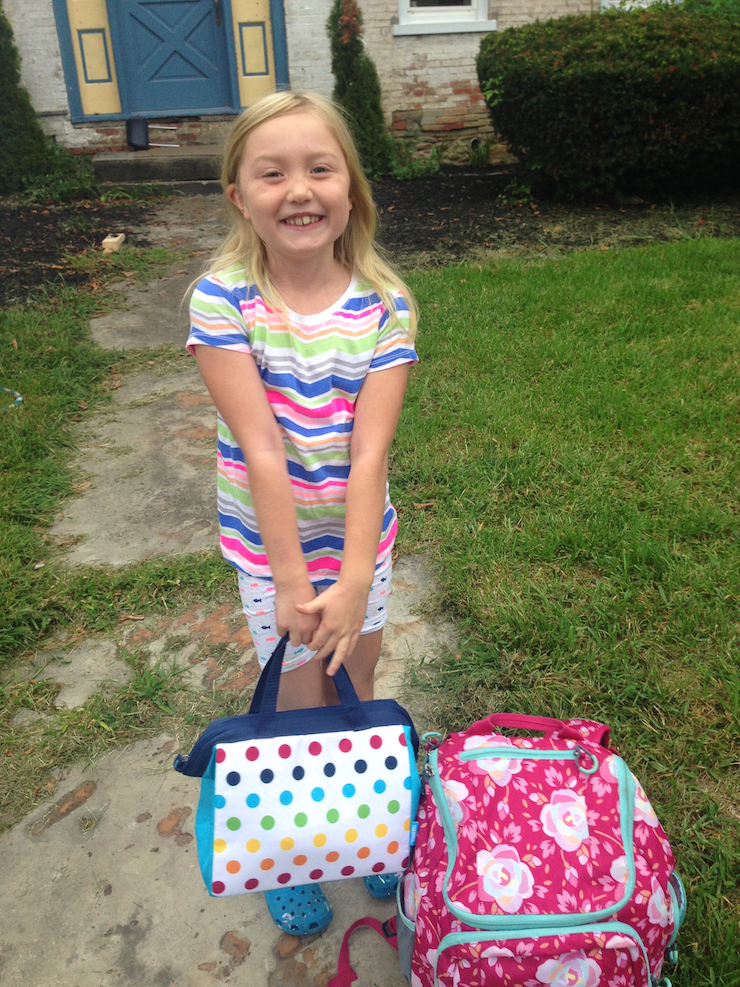I was 19 years old the first time I cried at school.
Okay, actually, that was the third time.
The first time I cried at school was because I spilled grape juice on my white corduroys. Nobody was home at my house to bring me new pants, so I had to go back to class and the other kids laughed at me.
The second time I cried at school was when I lost the Arbor Day poster contest to my classmate, Tracy. I was jealous. I thought my poem about a tree was better than her picture of a tree. Spoiler alert: it wasn’t.* When I did not win, I told my friends at recess to play 3-square instead of 4-square, so Tracy could not play. Which was a total dick move. (Tracy, I’m so sorry. Seriously. I don’t know where you are living right now, but if you are ever up for a game of 4-square, please give me a call.) Tracy told the teacher, who pulled me aside and pretty much told me I was being a dick, and when we went back to the classroom, I put my head down and cried until the bell rang to go home.
If we are being technical, I also cried in the bathroom during junior high dances because Steve was dancing with Allison and not with me. But everybody cried about that, plus, it was after school, so I do not think it should count.
But the other first time I cried at school, the one I remember most vividly, was not an occasion when I was clumsy or jilted or mean. It was because someone was mean to me.
I had prepared a presentation about the poet, Elizabeth Bishop, who was not only a luminary writer, but someone who fought during her lifetime to be recognized in the literary canon, which was snooty, and patriarchal, and totally biased against the contributions of women. I gave my presentation with all the exuberance of a college sophomore. I was naïve and excited and proud that I had quoted so many of Bishop’s poems in my presentation, which I thought made me seem smart. I argued that Elizabeth Bishop had paved the way for all poets to unite beneath the banner of POETRY and that even though it was sad she did not reap the gains during her lifetime, I did not think there was any longer a need for a protected space for women’s poets. WE HAD ARRIVED. It was about at this point in my presentation that my professor, an avid women’s poetry guru, interrupted me. “Had I learned NOTHING in her class?” “Had I not been listening to the way women’s voices are SILENCED?” She announced she could not hear one more word from me, and if I did not have something better to say then I should sit down.
In the days that followed, I thought of many better things to say:
–“As a matter of fact, I do have more to say, but I don’t want to hear one more word from you. Good day, madam. I said, good day.” At which point, I flipped my cape over my shoulder, and strode boldly out of the room. (In this version of the daydream, I am wearing a cape, but not a weird cape, more like a sort of poetry ninja/superhero.)
–“If you are so concerned about how women’s voices have been silenced over the years, why are you silencing mine? Please sit down, professor. I am not yet finished.”
–In one version of the daydream, I simply return to my desk, gather my things, and walk to the door. At which point, I turn and say to the rest of the class, “Are you going to sit there or join me in the fight?” One by one, my classmates gather their belongings and exit the room, leaving my professor with her shame. She calls later and begs me to return, begs all of us to return, but we refuse. Instead, Mary Oliver—who was an actual guest professor at my college that term and who, because I was too busy suffering from poetry abuse down the hall, I did not even learn about until much later in life—Mary Oliver agrees to teach me and my classmates about women and poetry.
Instead, in the real version of events, I shook my head, quietly indicated that No, of course I did not have anything else to say, and sat down. As the next terrified presenter took her place at the podium, I began to weep quietly. And though there were 14 other young adults in that classroom, no one said anything to me. No one even looked my way. No one wanted to ruin a chance of an A. Only Dana, who sat in front of me, a usually flamboyant and playful fellow, who had sung “Beauty School Dropout” in a recent school production of Grease, reached over and took my hand. He awkwardly held it for the remaining 45 minutes of that godforsaken class. Afterwards, he said we should go see the dean and file a formal complaint. There was no excuse for the way I had been treated.
But I was cowardly and afraid and thought I had done something wrong by floating an idea with which my professor had disagreed.
I did not fight for myself.
And I did not allow someone else to fight for me.
Instead, I attended that horrible class for the remainder of the semester, accepted my B-, and never took another poetry class again.
When I talked to my kids about going back to school this week, I did not harp on the homework or the spelling tests, or how they should eat their vegetables at lunch. I just told them to be like Dana.
Whenever you see someone left out of four square, go to her.
If you see someone sad about posters or slow dancing or a presentation or pants, comfort her.
When you see someone crying at school, reach out your hand.
And, if that person needs help that is bigger than you, find it. If someone does not know how to stand up for herself, help find her voice. Tell a teacher, tell a grownup. Find Mary Oliver. Don’t let anyone be schooled at school.
Be a Dana.
*What does it feel like to be a tree?
Swaying your branches and shading me.
Does it hurt when you get stung by a bee?
. . .
The poem languished on for about ten stanzas, but my poster paper was really only big enough for about eight, so the final lines had to be squashed in at the bottom, letters smaller and smaller, like the opening credits to a terrible Star Wars prequel.


